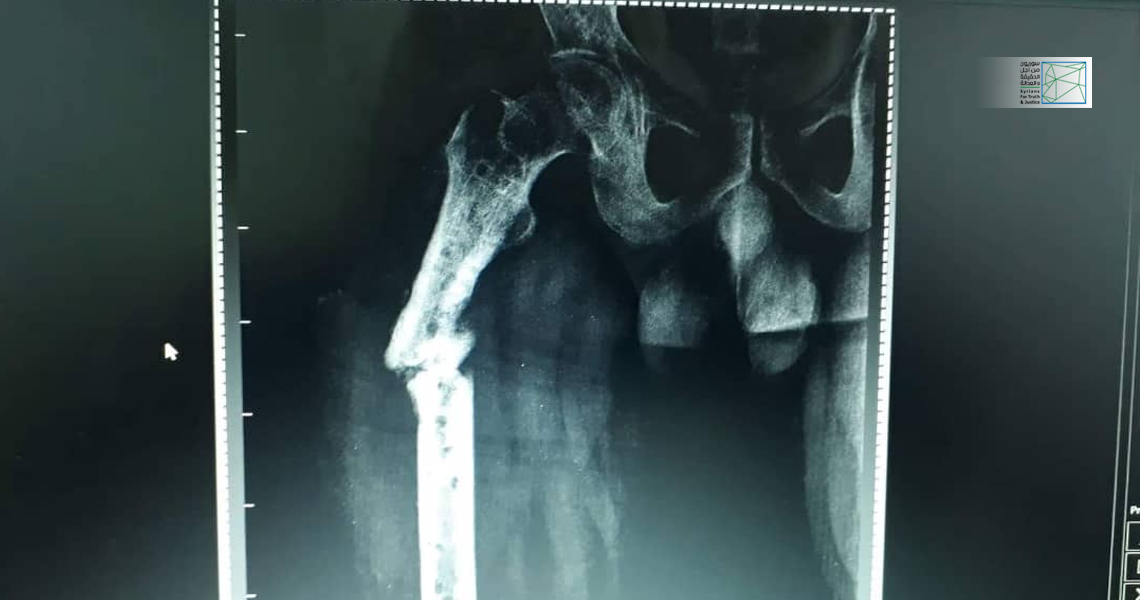Summary
Several people in the opposition-held rural Hama were victims of medical errors committed by fake doctors as well as specialists, between January 2018 and February 7, 2019, the date of preparing this report. [1]
Medical errors, which gravely harmed dozens in rural Hama, were attributed to the lack of the medical oversight and the production of forged medical certificates amidst the absence of laws and censorship, as witnesses stated to STJ, including the Minister of Health of the Syrian Interim Government.
The falsification of certificates in medicine and pharmacy was prevalent in rural Hama. Opening a pharmacy became the same as opening a supermarket or a restaurant. It’s all about money. There are more than 60 pharmacies in eastern and western Hama; only 24 of them are authorized by the Syrian Government’s Ministry of Health of, while the rest are unlicensed and owned by unqualified people. But what’s worse is when those fake pharmacists prescribe and give medicines to patients by their own, which leads to serious side effects on them. That prompted the Ministry of Health of the Syrian Interim Government to impose significant censorship on doctors and pharmacists when starting the practice of their professions and on their recruitment process.
As of November 2018, STJ reported the death of three people and the harm of two, including a child, in northeastern Syria’s Autonomous enclave, due to medical errors made by physicians or people posing as them. [2]
1. He lost the ability to walk due to a medical error
Medical errors are such a blight on those affected, as in the case of the witness Abdulhameed ash-Shuhna[3], who was admitted to a hospital in Kafr Zita following a motor accident in April 2018, which resulted in minor fractures to the leg and smashes in the hip bones. Ash-Shuhna underwent a surgery during which the doctor in charge, who was described by the witness as inexperienced, committed a serious mistake made Abdulhameed confined to bed till today.
Ash-Shuhna testified to STJ, saying:
“In April 2018, while I was riding my motorbike down Khan Sheikhoun road heading to the school I used to teach Arabic at in Kafr Nabl, I swerved off the road and crashed right into a boulder. Fortunately, a driver of a car passed by took me to a hospital in Kahn Sheikhoun. The doctors gave me painkillers, then fastened my leg with a fixation device temporarily to take x-rays. I had to choose between staying at that hospital to the next day till the orthopedist come or to go to another hospital. Actually, I chose to go to al-Maghara hospital in Kafr Zita, there I could call my family to inform them about the accident. The doctor in charge there recommended an emergency operation to install metal plates for the two fractures in my hip. The operation lasted for an hour and a half, and I stayed at the hospital for three days during which they injected me serums for three days before I was discharged. My condition was stable. I thought it was just a simple operation and that the metal plates would be removed as soon as my hip gets better”.
2. My leg was about to be amputated
Several days later, Abdulhameed suffered infections and swelling in his injured leg, so he went back to al-Maghara hospital, where the nurses squeezed the swollen area and remove the pus out.
Ash-Shuhna added:
“I kept getting worse, so I headed to a hospital in Saraqib city, southern Idlib, where the doctor told me that germs got in the wound during the operation and caused inflammation. The doctor in who did me the surgery is the one responsible, since the accident caused me only minor fractures but not injuries. This doctor’s acquaintances and colleagues assured me that he made numerous medical errors before, which caused deformations and disabilities to many, including his own brother who left with one leg shorter than the other. Anyway, I underwent weekly sessions to disinfect the area and I took antibiotics for a month to avoid the transmission of bacteria to the bones. The doctor in Saraqib said that my leg might be amputated if the infections had not been healed. However, I did another surgery in which the metal plates were removed, and an external apparatus was fixed to my leg. My knee was also fixed with a device since I had had a fracture there. Now I suffer calcification in my knee, I cannot bend it, I even can’t get out of bed. I hope I could walk as before. All those unqualified doctors should be dismissed and be held accountable.”
Ash-Shuhna never tried to lodge a complaint to the relevant authorities, arguing that it would be in vain as its predecessors, submitted by other medical error victims in Hama.
You may read & download the full version of this report as PDF format by clicking here.
[1] Rural Hama has been controlled by rebel groups including Jihadist; most notably Jaysh al-Izza and Hayat Tahrir al-Sham (HTS), as of February 7, 2019.
[2] “Wrongful Deaths Caused by Medical Errors in Northeastern Syria’s Autonomous Enclaves”, December 19, 2018, https://www.stj-sy.org/en/view/1100
[3] The witness Abdulhameed ash-Shuhna, born in 1982 in Hama. He is married with children and used to work as a teacher in Kafr Nabl town, southern Idlib, then moved to live in Kafr Zita city in north Hama.

